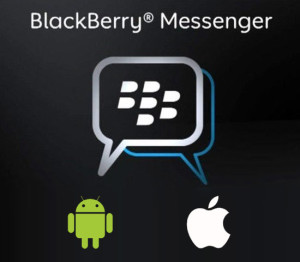BlackBerry’s messenger app for Android and iPhone will not roll out this week as the company struggles to block an unreleased version of the Android app that affected its system.

The smartphone maker said Saturday it had paused the global rollout of Android and iPhone versions of its BBM app after the unreleased version of BBM for Android was leaked on numerous file-sharing sites.
“This older version resulted in volumes of data traffic orders of magnitude higher than normal for each active user and impacted the system in abnormal ways,” wrote Andrew Bocking, head of BBM at BlackBerry, in a blog post on Monday. The version the company was planning to release on Saturday addressed the issues, but BlackBerry could not block users of the unreleased version if it went ahead with the launch, Bocking wrote.
As active users of the unreleased app neared 1 million, and were increasing, BlackBerry decided that the only way to address the issue was to pause the rollout for both Android and iPhone versions of the app. Besides modifying the system to completely block the unreleased version of the Android app when it goes live with the official BBM for Android app, the company also wants to reinforce its system to handle similar scenarios in future, Bocking wrote.
“This will take some time and I do not anticipate launching this week,” he added.
BlackBerry said Saturday that customers who had already downloaded BBM for iPhone will be able to continue to use the service, while the unreleased Android app would be disabled. The company said earlier this month that BBM, once exclusively available to users of BlackBerry phones, would start rolling out to iPhone and Android phone users worldwide from Saturday.
A consortium led by Canada’s Fairfax Financial Holdings offered Monday to acquire BlackBerry in a deal that values the company at US$4.7 billion. The proposal is backed by BlackBerry’s board of directors.
The crisis in the rollout of the BBM for iPhone and Android is just one of many problems affecting the company which last week said it would take almost $1 billion in charges mainly on unsold BlackBerry Z10 handsets, and lay off around 4,500 staff and reduce the number of phone models it sells from six to four.





